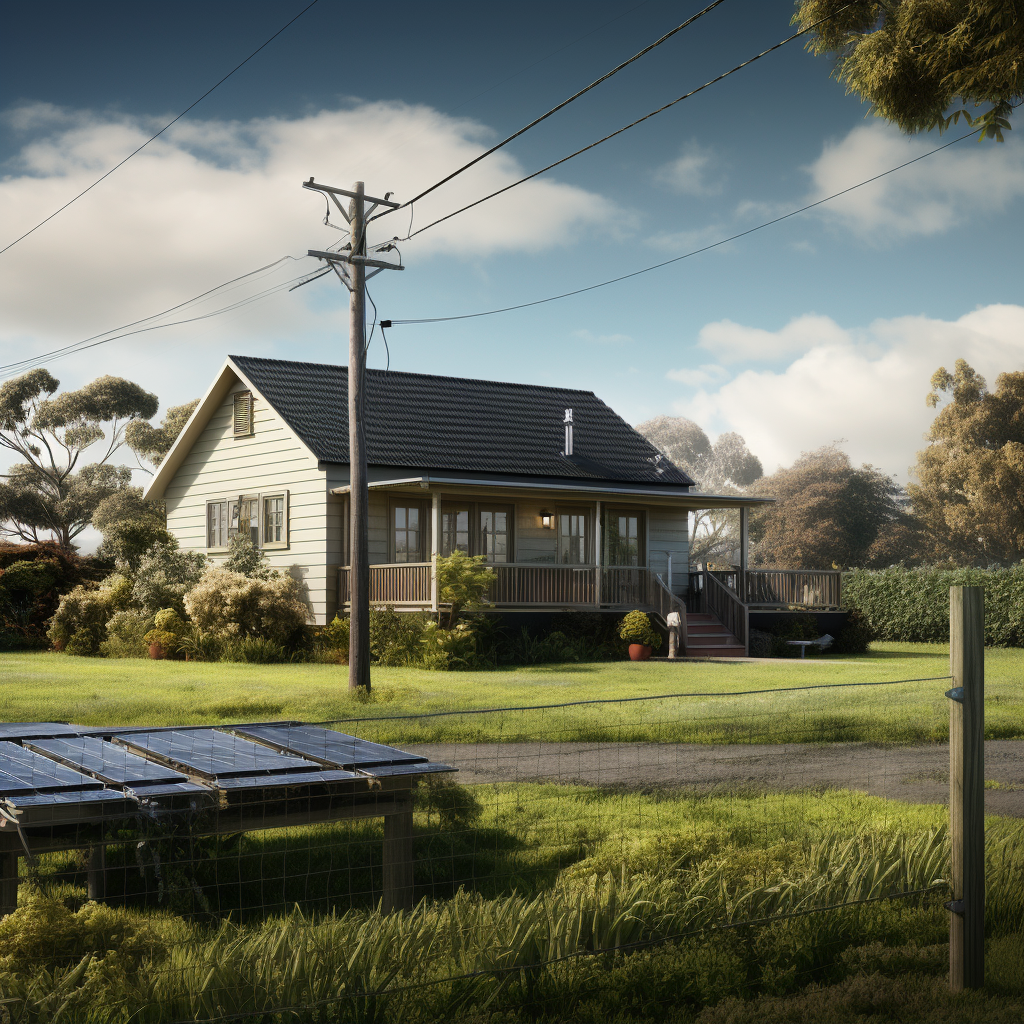Leasehold property ownership is a unique and often misunderstood aspect of the New Zealand property market. It presents an alternative to freehold ownership, with its own set of advantages and considerations. This guide delves into the intricacies of leasehold arrangements, offering valuable insights for those navigating this sector of the property landscape.
Understanding Leasehold Ownership
Leasehold ownership is a unique arrangement where you, as the leaseholder, have the right to use a piece of land for a predetermined length of time. While you have the liberty to own buildings or enhancements made on the land, the rights to the land itself stay with the original landowner or lessor. This is a key distinction from freehold ownership, where both the land and any improvements upon it are owned outright.
This form of property ownership is governed by a lease agreement. This crucial document outlines specific terms related to your occupancy—such as ground rent, lease duration, renewal conditions, and other responsibilities. It's worth noting that these agreements can span anywhere from just a few years to several centuries. Given such a wide range, fully understanding all aspects of your lease agreement becomes not just important but imperative.
"Knowing the ins and outs of your lease agreement can save you from unexpected surprises down the line."
Lease Duration and Renewal
The term or duration of a lease varies significantly in New Zealand's property market. It's not uncommon to encounter leases stretching up to 999 years; however, more typical are leases running for shorter durations like 50 or 100 years.
Understanding renewal conditions is paramount because these dictate what happens when your lease reaches its end. Importantly, once a lease expires without renewal, ownership of the property—including any buildings or improvements made—reverts back to the original landowner.
Here are some key points about lease duration and renewal:
- Terms of Renewal: The process for renewing a lease typically starts with negotiations between you and the lessor. It’s critical to be aware of any clauses in your agreement concerning this.
- Costs: Renewal often involves costs, which might include legal fees and a revised ground rent.
- Reversion: If a lease isn't renewed upon expiration, all rights over the property return to the landowner. This means the lessor could potentially lease the property to someone else, or use it as they see fit.
In conclusion, while leasehold ownership can offer more affordable entry into property markets like Auckland's, it's essential to be aware of all its aspects. From understanding the lease agreement to knowing what happens when your lease ends, being informed will enable confident decision-making in this unique sector of New Zealand's property landscape.
Ground Rent: An Essential Factor in Leasehold Properties
An integral component of leasehold properties is the ground rent. This is a recurring fee that leaseholders are obligated to pay for the privilege of using the land. Unlike a one-off payment, ground rent remains a constant during the tenure of your lease.
However, it's important to note that this isn't a fixed cost. Ground rent typically undergoes periodic reviews and adjustments. These changes can be due to various factors such as current market conditions, inflation rate, or clauses specified in your lease agreement.
Therefore, if you're considering investing in a leasehold property, it's crucial to not only look at the initial ground rent but also understand how it might change over time. These fluctuations can influence long-term costs significantly and affect your property's profitability.
Impact on Property Value: Understanding Leasehold Fluctuations
In comparison to freehold properties, leasehold ones may initially appear more affordable. However, the value of these properties is subject to fluctuations—especially as the lease matures.
For example:
The Impact of Lease Term on Property Value
When considering a leasehold property, it's important to understand that the remaining term on the lease can influence its value. As a general rule, as the remaining term decreases, so too may the property’s value. This is because the security of tenure decreases over time, and potential buyers may be deterred by the looming cost and uncertainty of lease renewal.
Let's break down this concept further:
- Short-term leases: Properties with a relatively short remaining lease term (for instance, less than 80 years) can see their value depreciate more rapidly. This is largely due to the increased risk associated with shorter leases - including higher costs for lease extensions and potential difficulties in securing mortgage financing.
- Long-term leases: On the other hand, properties with long-term leases (say, over 100 years remaining) tend to maintain their value better. Buyers have more confidence in such properties as they offer a longer period of secure tenure, often comparable to freehold properties.
Uncertainty about Future Ground Rents and Renewal Terms
Another factor that could negatively impact property prices is uncertainty about future ground rents or renewal terms. Ground rents are not static; they can and do change over time. There is the potential for ground rents to increase dramatically, often by multiples of historical amounts.
Here's how this could happen:
- Periodic Reviews: Many lease agreements include clauses that allow for periodic reviews of ground rent. These reviews can lead to significant increases in ground rent, especially if there has been substantial inflation or changes in market conditions since the last review.
- Lease Renewal: When a lease comes up for renewal, there's often uncertainty about what new terms will be negotiated. This could include substantial increases in ground rent, which would naturally make the property less attractive to potential buyers.
When you're looking at investing in leasehold properties, it's important to look beyond the initial price. Consider the impact of the remaining lease term and potential ground rent increases on the property's long-term value. Armed with this knowledge, you can make a more informed investment decision.
These variations must be factored into any investment decision. So, while the initial outlay for a leasehold property might seem attractive, potential investors should factor in possible value changes over time when calculating their return on investment.
Leasehold in Apartment Living: A Common Scenario in Urban Centres
In bustling urban centres like Auckland, many apartment buildings stand on leasehold land. This form of tenure is particularly common in developments erected on lands owned by government entities or local councils.
Why is this so? Well, often these bodies retain ownership of valuable city centre plots but grant long-term leases to developers instead. This allows them to maintain control over land use while also benefiting from periodic ground rents.
For potential apartment dwellers, this means:
- Understanding the terms of your lease agreement is crucial.
- Being mindful that your ground rent could increase over time.
- Recognising that your property's value may fluctuate as the lease matures.
By being aware of these key aspects, you can make an informed decision about whether leasehold apartment living suits your lifestyle and financial goals.
Financing a Leasehold Property
Securing finance for a leasehold property can pose challenges due to perceived higher risks by lenders, especially if the lease is short-term. This perception can affect loan conditions and interest rates.
Reviewing Lease Terms
Scrutinizing your lease agreement is vital. Important aspects include ground rent revisions, both parties' rights and responsibilities, and clauses concerning renewal or extension options.
Selling a Leasehold Property: Navigating the Complexities
Navigating the process of selling a leasehold property is inherently more complex than dealing with freeholds. This complexity arises due to various factors, such as the remaining duration of the lease, which can directly and significantly impact both marketability and pricing.
Impact of Remaining Lease Duration
The length of time left on your lease is a key determinant in the sale process. As a rule of thumb:
- Long-term leases (>80 years): These are generally more attractive to prospective buyers and lenders, often resulting in higher property values.
- Shorter leases (<60 years): These can deter potential buyers due to the looming cost of extending the lease. They can also present more difficulties when trying to secure mortgage finance.
Lease Extensions and Their Cost
Another factor to consider when selling a leasehold property is the potential for a lease extension. Extending a lease could increase your property's attractiveness, but it comes with costs which can be substantial depending on several variables like:
- The ground rent
- The value of the property
- The remaining length of the lease
Keep in mind that processing times for extending leases can be lengthy, so early planning is beneficial.
Managing Service Charges and Ground Rent
As a leaseholder, you're typically responsible for service charges and ground rent. Before selling:
- Ensure all payments are up-to-date.
- Disclose any upcoming significant service charge expenditure to potential buyers.
Understanding the Legal Aspect
The legal side of selling a leasehold property involves unique considerations. You need to provide specific documents, including:
- A copy of the lease
- Up-to-date service charge accounts
- Building insurance details
- Information regarding any ongoing disputes
While selling a leasehold property may demand more effort compared to freeholds due to factors like remaining duration of the lease, potential extensions, and service charges, with thorough understanding and preparation, you can navigate this process effectively.
Leasehold vs. Renting
It's important not to confuse leaseholding with renting; leaseholders own their building and have long-term land interest—something renters do not possess.
Renovations and Improvements for Leasehold Properties
When you own a leasehold property, the freedom to modify your space is not as unlimited as in a freehold scenario. As a leaseholder, it's crucial to understand the implications of making changes to your property.
Consent for Modifications
Generally, leaseholders require consent from landowners before making any significant modifications to their properties. This might include everything from extensive renovations like converting a loft or basement, extending the building footprint, to even relatively minor changes such as altering internal layouts or replacing windows.
Remember: Before embarking on any renovation project, always check the terms of your lease agreement thoroughly and consult with your landlord or their representative.
Financial Implications of Improvements
More often than not, investments made in property improvements don't necessarily translate into an equivalent increase in property value when it comes to selling. This can be particularly true for leasehold properties due to factors such as:
- Lease duration: The remaining length of your lease can significantly influence the property's value. The shorter the lease, the less attractive it may be for potential buyers, regardless of how impressive the renovations are.
- Reversion clause: At the end of the lease term, any improvements made revert back to the landlord. If your lease has a short term left, this factor could substantially devalue any investment made in renovations.
In light of these factors, it's essential for leaseholders to carefully consider and plan their renovation projects.
Pro Tip: Consider seeking professional advice from real estate agents or surveyors familiar with leasehold properties. Their insights could help you make informed decisions about what improvements are likely to add value.
Making Smart Improvements
While significant renovations may not always yield expected returns, some strategic improvements could add considerable appeal to your property. For instance:
- Enhancing energy efficiency: Improvements such as insulation, energy-efficient appliances, or solar panels can increase your property's appeal to environmentally-conscious buyers.
- Updating essentials: Regularly updating essential areas like kitchens and bathrooms can keep your property appealing and competitive on the market.
- Maintaining outdoor spaces: If your leasehold includes a garden or other outdoor space, keeping it well-maintained can add considerable charm.
While renovations and improvements are an integral part of property ownership, leaseholders must approach them with a little more caution and strategic planning to ensure maximum benefit.
Legal Considerations
Leaseholds are subject to specific legal frameworks that must be understood thoroughly to ensure compliance and safeguard interests.
Lease Expiry and Reversion
When a lease concludes, all improvements revert to the landowner—a critical factor when considering a leasehold purchase.
Potential for Leasehold to Freehold Conversion
Occasionally opportunities arise to convert leaseholds into freeholds—a process known as freeholding—though often at substantial cost.
Leasehold in Special Developments
Certain developments may only offer leaseholds—for instance, those on heritage sites—to maintain community or cultural values.
Changing Lease Conditions
Over time, leases—especially ground rent—can change according to contractual terms and legislation changes. Staying informed is crucial for lessees.
Subleasing
Subleasing can be an option for lessees but generally requires approval from the landowner and adherence to original leasing terms.
Leasehold in Commercial Real Estate
Leaseholds are also prevalent in commercial real estate where businesses might opt for this due to lower initial expenses or strategic reasons.
Dispute Resolution
Disputes can emerge over various issues such as rent reviews or maintenance duties within a leaseholding framework.
Environmental and Planning Regulations
Like freeholders, lessees must comply with local environmental standards and planning regulations affecting their properties.
Financial Planning and Leasehold
Effective financial planning is indispensable when managing ongoing costs linked with leasing—including ground rent and potential increases over time.
Navigating through the complexities of leaseholding in New Zealand demands diligence and an understanding of all facets—from legal implications to financial planning. By educating oneself on these matters, one can make empowered decisions ensuring that any venture into this domain is undertaken with confidence and clarity. Whether you're an investor or simply seeking knowledge on this topic before embarking on your property journey, recognizing how these elements interplay will serve as an invaluable resource towards achieving your objectives in New Zealand's dynamic real estate environment.






